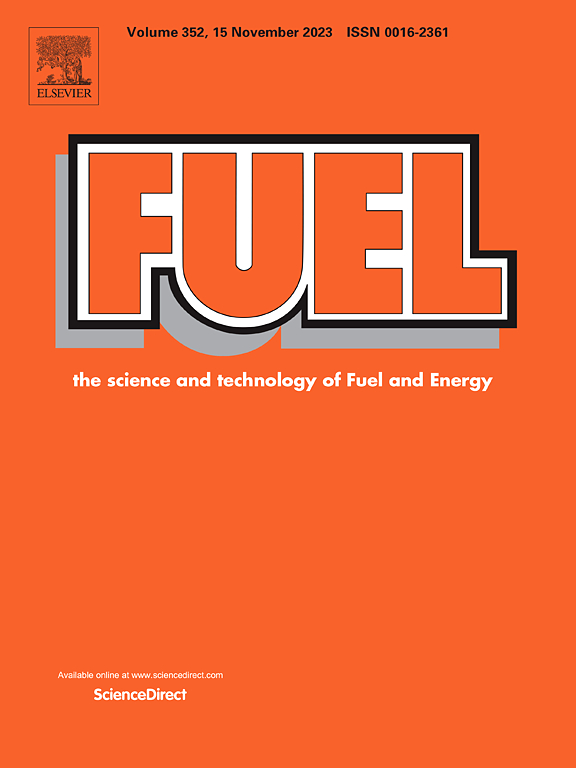Combustion characteristics, soot precursors and soot particle characteristics of methanol/coal-to-liquid (CTL) in RCCI combustion mode
IF 7.5
1区 工程技术
Q2 ENERGY & FUELS
引用次数: 0
Abstract
This study explores methanol/coal-to-liquid (CTL) dual-fuel Reactivity Controlled Compression Ignition (RCCI) combustion in a diesel engine. Combining experimental measurements and computational fluid dynamics simulations, the research evaluates combustion performance, soot precursor formation, and the physicochemical properties of emitted soot particles. Results indicate that methanol port injection significantly shortens ignition delay (5.1 °CA vs. 15.2–17.0 °CA for conventional modes) and increases peak in-cylinder pressure due to intensified premixed combustion. Although brake thermal efficiency decreased by 3.1% compared to diesel, soot precursors (A1–A7) were effectively suppressed, attributed to enhanced OH radical activity and shifted formation zones toward lower temperatures and higher equivalence ratios. Notably, methanol/CTL soot exhibited larger primary particle size, higher organic carbon fraction, elevated surface oxygen content, and more disordered nanostructure. These structural modifications contributed to markedly improved oxidation reactivity. The findings demonstrate that methanol/CTL RCCI combustion effectively reduces soot precursor generation and alters soot properties toward higher reactivity, facilitating more efficient oxidation in aftertreatment systems.
甲醇/煤制液(CTL)在RCCI燃烧模式下的燃烧特性、烟尘前体和烟尘颗粒特性
本研究探讨了甲醇/煤制液(CTL)双燃料反应性控制压缩点火(RCCI)在柴油机中的燃烧。结合实验测量和计算流体动力学模拟,研究了燃烧性能、烟尘前体形成和排放烟尘颗粒的物理化学性质。结果表明,甲醇端口喷射显著缩短了点火延迟(5.1°CA比15.2-17.0°CA的传统模式),并增加了由于加强预混合燃烧的缸内峰值压力。尽管与柴油相比,制动热效率降低了3.1%,但由于OH自由基活性增强,形成区向较低温度和较高当量比转移,因此有效抑制了煤烟前体(A1-A7)。甲醇/CTL煤烟初生粒径较大,有机碳含量较高,表面氧含量升高,纳米结构更加无序。这些结构修饰有助于显著提高氧化反应性。研究结果表明,甲醇/CTL RCCI燃烧有效地减少了煤烟前驱体的产生,并改变了煤烟的性质,使其具有更高的反应活性,有助于在后处理系统中更有效地氧化。
本文章由计算机程序翻译,如有差异,请以英文原文为准。
求助全文
约1分钟内获得全文
求助全文
来源期刊

Fuel
工程技术-工程:化工
CiteScore
12.80
自引率
20.30%
发文量
3506
审稿时长
64 days
期刊介绍:
The exploration of energy sources remains a critical matter of study. For the past nine decades, fuel has consistently held the forefront in primary research efforts within the field of energy science. This area of investigation encompasses a wide range of subjects, with a particular emphasis on emerging concerns like environmental factors and pollution.
 求助内容:
求助内容: 应助结果提醒方式:
应助结果提醒方式:


